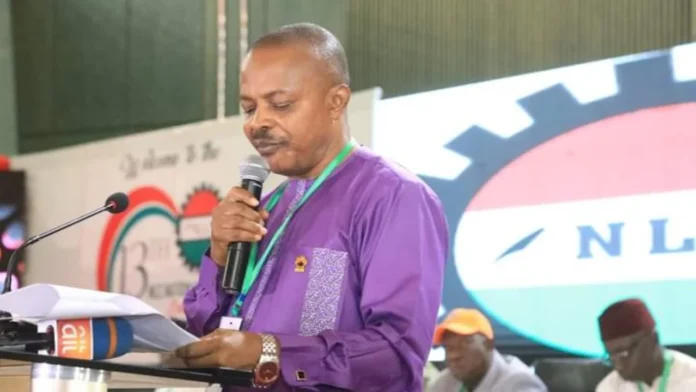The Nigeria Labour Congress (NLC) has demanded a full public audit of the power sector after another collapse of the national grid plunged millions into darkness.
NLC President, Joe Ajaero, blamed the federal government for throwing public money at failed private operators. He insisted that workers and citizens would no longer accept excuses for what he described as a man-made crisis.
“Since the government has N4 trillion to invest in the sector, we suggest that the funds must be redirected towards a public-led initiative to build new generation capacity and revitalise the transmission infrastructure instead of handing it over to the Gencos and Discos,” Ajaero said.
He added: “This is not a plea; it is a declaration of intent. The light must come on, by any means necessary. Once again, we call for a comprehensive public audit of the entire power sector. The working class and the suffering masses of Nigeria will no longer tolerate this darkness.”
Calls for Power Reform
The NLC said the repeated collapse of the national grid was proof of government’s deliberate failure to fix the sector. According to Ajaero, the present privatisation model had trapped Nigerians in a cycle of blackouts and excuses.
The Nigerian Independent System Operator (NISO) confirmed the collapse happened at 11:20 am on Wednesday after the tripping of a generating unit cascaded through the grid. The outage cut supply nationwide.
At its lowest point, only 20MW was available to Ibadan Disco. By 8:21 pm, restoration had reached 1,583MW, with Abuja Disco receiving 243MW, Ikeja 239MW, and Eko 204MW.
Discos Confirm Outage
The Abuja Electricity Distribution Company (AEDC) confirmed the blackout on its social media page, writing: “The outage was due to a loss of supply from the national grid at 11:23 am. Our teams are working with TCN to restore power.”
Kano Disco said the collapse led to “a widespread power outage affecting our entire network” and warned customers to remain vigilant against vandals.
Ikeja Electric also announced that all its feeders went off at 11:20 am. By late evening, power was returning but millions were still in the dark.
The persistent collapse of Nigeria’s power grid continues to question the effectiveness of the privatisation model introduced in 2013, as many experts argue it has failed to deliver steady electricity to the people.
Rate, Like 👍, Comment💬, share this article and Follow us on our social media handles. You can also Submit your own story to get featured and earn rewards!







